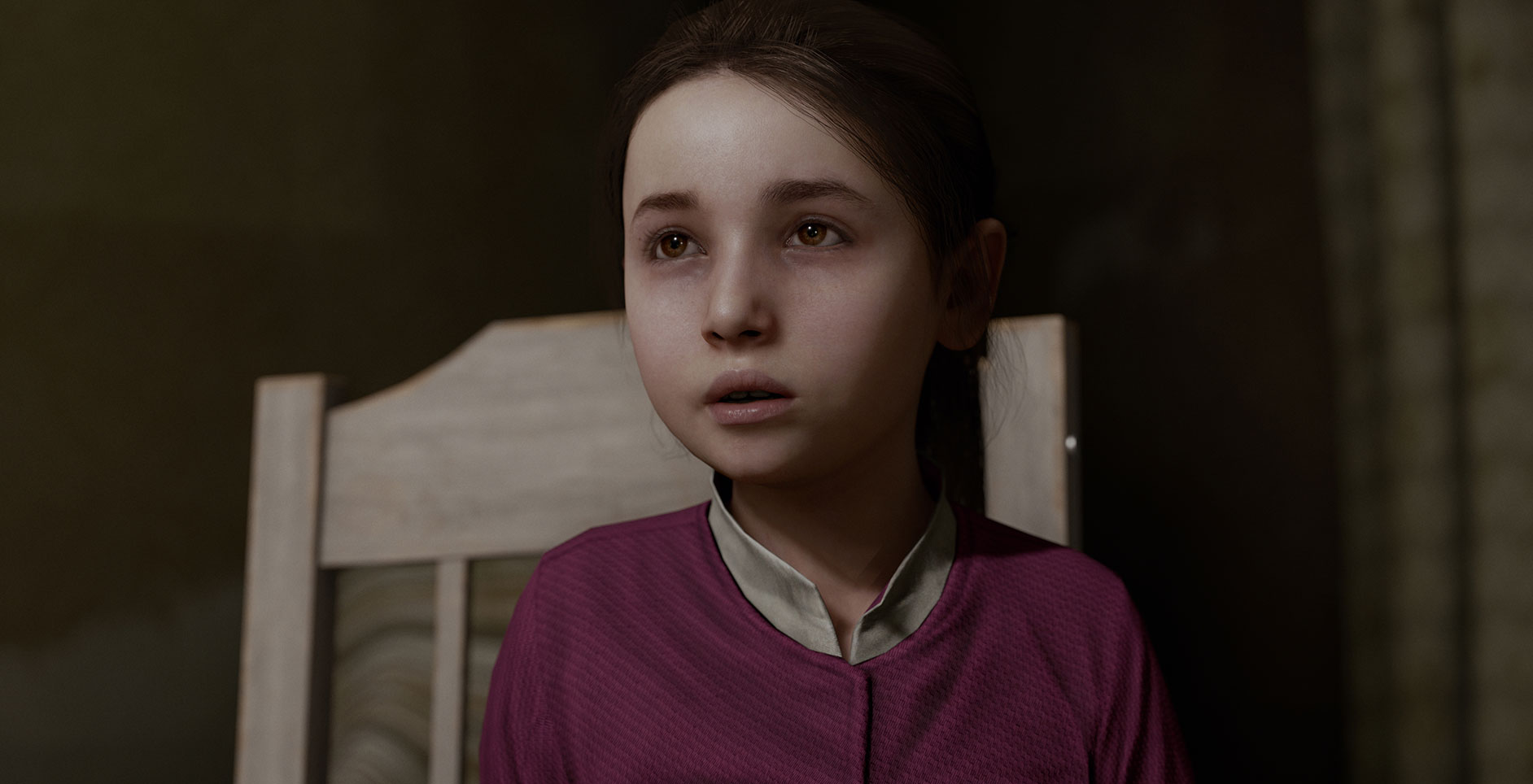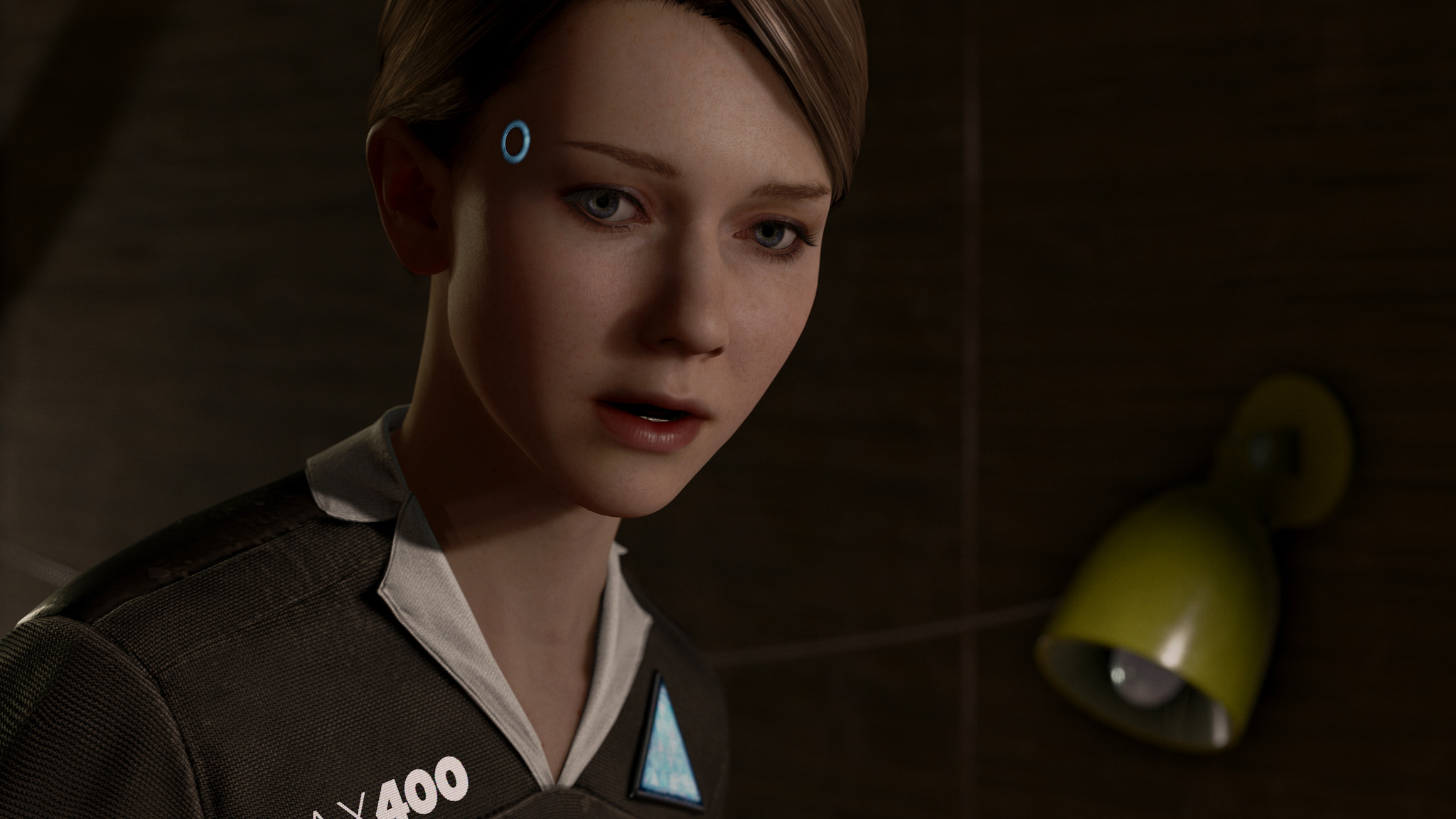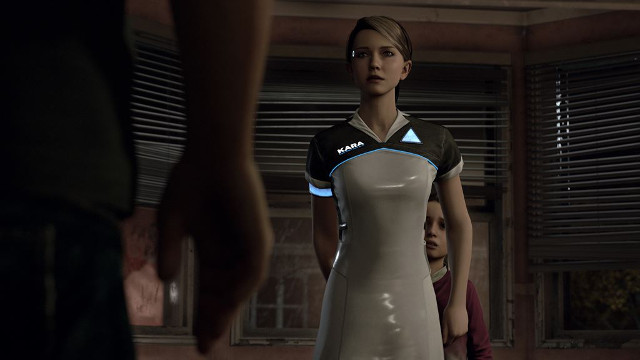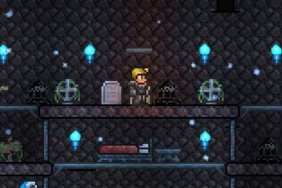Context is key, as Quantic Dream most definitely learned from the controversy surrounding Detroit: Become Human’s Paris Games Week trailer. The game sparked heated discussion around its shocking depiction of domestic abuse, specifically regarding a child and her father.
It was sudden, real, and far more disturbing than other scenes we have seen from Detroit thus far. When I sat down with Quantic Dream’s CEO and Executive Producer Guillaume de Fondaumière to play through that specific level called Stormy Night, I went in unsure of how it would be handled.
Thankfully, I walked out feeling more confident that Detroit will handle its tougher subjects with care. Guillaume explained the necessary context for the scene that was sorely missing in the montage-centric trailer. This is android protagonist Kara’s second scene in the game, with the first one establishing her relationship and role in a family composed of only herself, alcoholic father Todd and his daughter Alice.
Also: GameRevolution’s Top 10 Best PS4 Games of 2017
The Stormy Night began with a simple objective: make dinner. As Kara, I made my way to the kitchen and began serving up spaghetti, as Todd was spouting off frustrations under his breath in the background. This was all going on in real-time as I completed various quick-time events, and tt was clear from the start that something was off.

I served Todd and Alice through the somewhat wonky quick-time events — unfortunately still a bugbear from previous Quantic Dream games — as Todd’s anger gradually rose to verbal abuse directed towards Alice at the dinner table. Here, Quantic Dream’s began to reveal itself, with Detroit Become Human being absolutely stunning to look at even in its darker moments. Aside from the already impressive graphics, the emotive animations on each character’s face truly sell the strong motion captured performances of its cast.
As Kara, I could do nothing more than stand obediently with my hands behind my back, or I could watch the scene play out in a more cinematic fashion. Regardless of which option I chose I felt utterly helpless, as the scene grew more intense and disturbing to the point of Alice running upstairs to hide. As someone who has experienced a similar situation in real life, this preview was difficult to play through, but that’s why it’s so important to note that Detroit doesn’t take the subject lightly at all.
The next moment was the scene’s most powerful, and it’s one I won’t spoil outright. As I stood there and watched Todd look for a belt to punish Alice with, I had a decision to make: continue to stand by like I was told to, or make a difference. Without giving away too much, Detroit perfectly captured the weight of this decision and what was going on in Kara’s mind gameplay-wise, without making it a simple “press X to choose this, press circle to choose that.”

With my decision made, I chose to protect Alice and save her from her abusive father. There was a tense and brutal struggle filled with QTEs (some of which I missed as a result of being shaken up by the preceding events), and though my ending saw Alice live, it came at a cost.
Detroit’s use of cameras is key to its depiction of this sensitive matter. Though there was some physical abuse that did happen in my preview, the game smartly maneuvered the camera angle so that the brunt of it wasn’t shown directly onscreen to the player. It was even more emotional at the end, realizing that I could have failed to protect Alice.
In fact, some people may never see the ending I got if they missed out on discovering a key clue that was found in Kara’s first level in Detroit. The cliffhanger at the end shows that you will see the consequences and results of your choices play out for the rest of the game. The love put into Detroit’s powerful storytelling that I experienced in the preview has resulted in it becoming my most anticipated game of 2018, and I can’t wait to play more.







